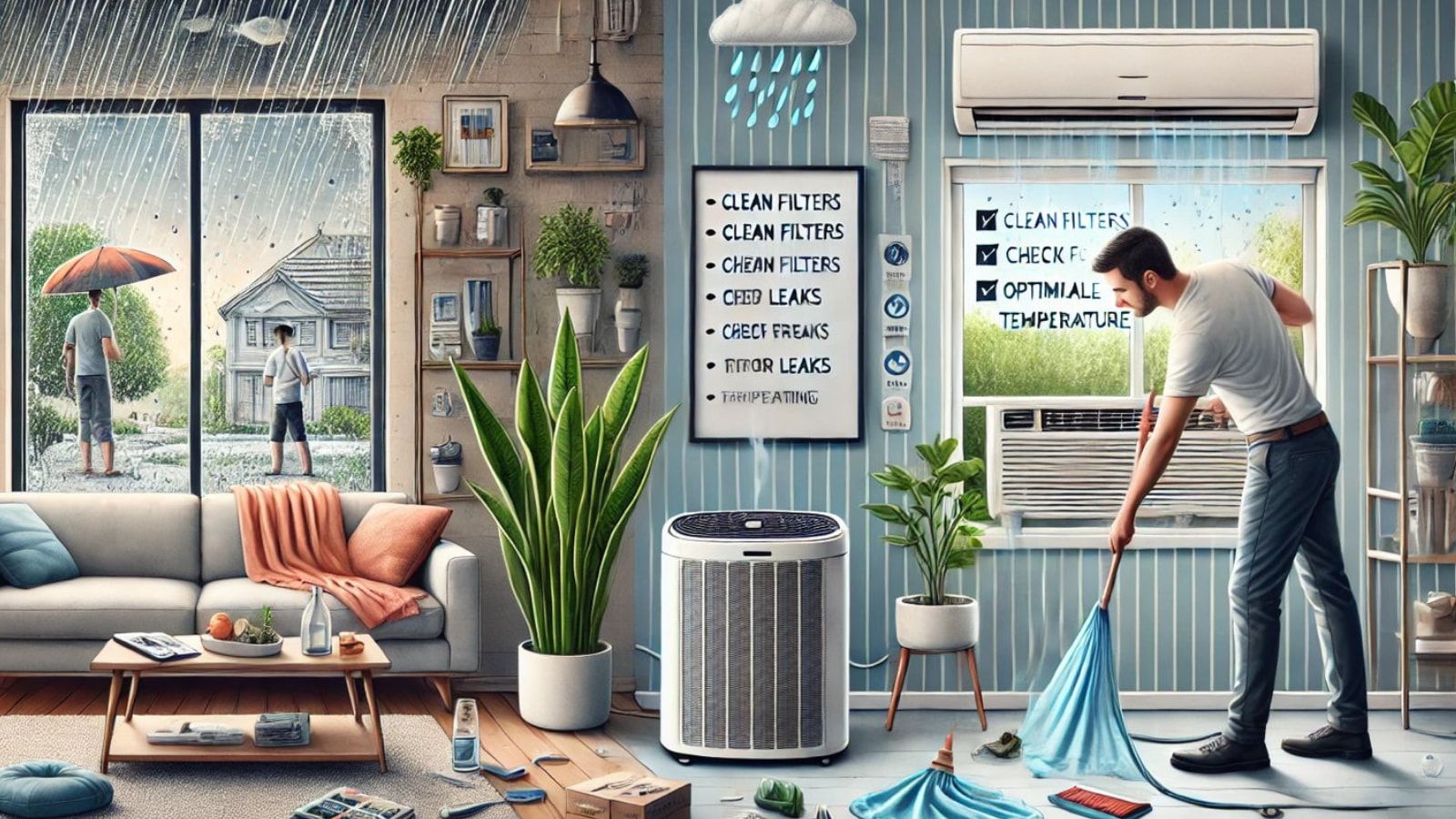7 tips to boost your ACs’ efficiency and reduce your power bill this monsoon
Is your AC taking long to cool your room this monsoon? Here are some tips that can help you boost its performance.
 Monsoon is cool, but it might make your AC less efficient. (AI Generated)
Monsoon is cool, but it might make your AC less efficient. (AI Generated)Monsoon is one of the best times of the year, but with our planet getting hotter every year, we often need air conditioners to combat the humidity inside our homes. While ACs are great in combating indoor humidity, the monsoon season comes with some challenges with respect to their performance.
Sanjay Sudhakaran, managing director for Johnson Controls-Hitachi Air Conditioning India Limited., India & South Asia region, shares some easy tips to maintain your ACs’ efficiency.
- 01
How does your AC control humidity?
Before we go any further, it is important to understand how AC units regulate humidity, especially during the monsoon season. Essentially, ACs function by removing both heat and moisture from the air. Humidity levels are lowered owing to the cooling coils inside the AC that condense water vapour. It needs to be noted that this dehumidification process varies across different AC models. This could be reason enough to be thoughtful in selecting an AC.
- 02
Ensure adequate ventilation to maintain airflow
To keep your ACs ability to make your room comfortable and remove moisture from the atmosphere, make sure the fan unit has adequate ventilation. Make sure to periodically remove any branches, flowers or leaves that may be in the way of your ACs fan.
- 03
Clean the external unit every once in a while
Your indoor unit may be clean, but the external unit accumulates dust and other things after some time. In case of a window AC, this will be the back of the AC outside the window. If you have a split AC, make sure you clean the external unit that houses the fan. Some modern AC’s come with a feature that lets them clean the air filters. During monsoon, dust might find its way into your AC’s filters, so make sure to clean the filters and coils every once in a while.
- 04
Protect the external unit
The external unit is responsible for most of the heat dissipation and maintaining the set temperature inside, but since it's vulnerable to dust and debris, make sure you cover it with a waterproof cover.
- 05
Optimise the AC temperature to combat humidity
During monsoon, make sure you set your AC anywhere between 24 to 26 degree Celsius to keep your room cool and remove moisture as turning it down to the lowest setting might cause a jump in energy consumption and decrease the overall efficiency.
- 06
Keep a check on electricity-related issues
During monsoons, power fluctuations are common and can end up damaging your AC. Although Hitachi ACs can function in a wide operating range, it is always good to take preventive measures. Investing in a good-quality stabiliser to protect AC from power surges and fluctuation is highly recommended. Ideally, a surge protector can safeguard the AC's electronic components from sudden voltage spikes.
- 07
Keep a check on performance and energy efficiency
To ensure that your AC is up and running, it is important to monitor its performance and energy consumption, as this can help you identify issues early on. Monitor the cooling efficiency and energy bills, and any sudden spike in energy consumption or reduced cooling can indicate a problem. Also, check for unusual noises from the AC. Strange sounds can be a sign of mechanical issues, which may need your urgent attention.
According to Sudhakaran, taking care of your Hitachi AC during monsoons requires regular maintenance, protective measures, and timely professional servicing. Sudhakaran asserts that by following the above tips, one can ensure that their AC runs efficiently, providing cool and comfortable indoor air even during the rainy season. The Hitachi executive believes that a well-maintained air conditioner not only increases comfort but also saves on energy bills and extends the lifespan of the unit.







